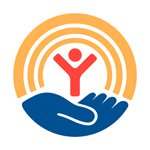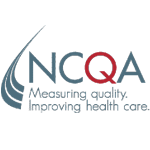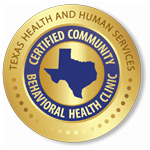
July 01, 2020
BIPOC (Black, Indigenous People of Color) Mental Health Month is the perfect time for everyone to take a pause and evaluate their mental health. You could do that through taking a mental health screening, seeking therapeutic or counseling services, or developing some new mental health habits. Regardless of what path you choose, now is a great time to take a look at how you are doing and what your mental health needs are.
The unique experiences of BIPOC often lead to unique mental health care needs.
Mental Health America recently released its 2020 BIPOC Mental Health Month guide on the Impacts of Trauma. In this guide, the organization includes these important realities:
- Although rates of mental illness in some BIPOC populations are sometimes comparable or slightly lower than the rates in the white population, BIPOC often experience a disproportionately high burden of disability from mental disorders.
- Black adults are 20 percent more likely to report serious psychological distress than adult Whites.
- Native and Indigenous Americans report higher rates of posttraumatic stress disorder and alcohol dependence than any other ethnic/racial group.
- Mental and behavioral health conditions are common among people in the criminal justice system, in which BIPOC are disproportionately overrepresented. Approximately 50 percent to 75 percent of youth in the juvenile justice system meet the diagnostic criteria for a mental illness.
- Cultural incompetence of health care providers likely contributes to underdiagnosis and/or misdiagnosis of mental illness in BIPOC. Language differences between patient and provider, stigma of mental illness among BIPOC, and cultural presentation of symptoms are some of the many barriers to care that explain these errors in the diagnostic process.
- Native and Indigenous American adults have the highest reported rate of mental illnesses of any single race identifying group.
Recognizing Race-Based Traumatic Stress (RBTS)
The guide also explains that because BIPOC may suffer mental health consequences of both individual and systemic racism, they may also be diagnosed with Race-Based Traumatic Stress (RBTS). They write, “Racial trauma, or race-based traumatic stress (RBTS), refers to the mental and emotional injury caused by encounters with racial bias and ethnic discrimination, racism, and hate crimes. Any individual that has experienced an emotionally painful, sudden, and uncontrollable racist encounter is at risk of suffering from a race-based traumatic stress injury. In the U.S., Black, Indigenous People of Color (BIPOC) are most vulnerable due to living under a system of white supremacy.”
There are different kinds of stressors that can cause someone to experience the effects of trauma. Direct Traumatic Stressors include direct physical and verbal attacks, as well as the cumulative effects of microaggressions.
Vicarious Traumatic Stressors are the result of living in a society where there is extensive systemic racism. An attack on one individual may cause vicarious trauma for another, if both individuals share a marginalized identity.
Transmitted Traumatic Stressors are passed from one generation to another. Examples of this would be the long-term impact of Native American communities that have been affected by racist policies of forced enrollment in boarding schools and forced migration. Individuals whose grandparents and great-grandparents survived the Holocaust may be vulnerable to transmitted stressors. The results of generations of slavery, Jim Crow laws, segregated housing, and a discriminatory justice system can cause Black Americans to experience transmitted stressors as well.
BIPOC trauma deserves treatment and care.
There are many different kinds of trauma. While trauma can come from violence, abuse, and other events that are very visible and noticeable, it is important not to discount the trauma that can come from living as a BIPOC in America.
Mental Health America explains that subtle causes of trauma can include things like:
- Being avoided in public because of strangers’ fear
- Facing lending discrimination from banks and credit companies
- Dealing with the reality of the mass incarceration of peers and family
- Being educated in a school system that includes curricula that minimizes their contributions to our shared history
- Experiencing racial profiling in any setting
As mental health care providers, we can’t emphasize this enough: your experiences are valid and you deserve to be heard.
If you are looking for a mental health care professional who understands and values the unique experiences of BIPOC trauma, let’s talk. We look forward to hearing from you.
Sources
Stay connected
Sign up for our newsletter











